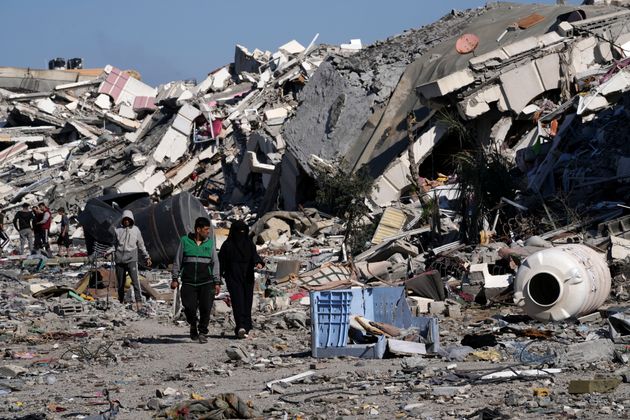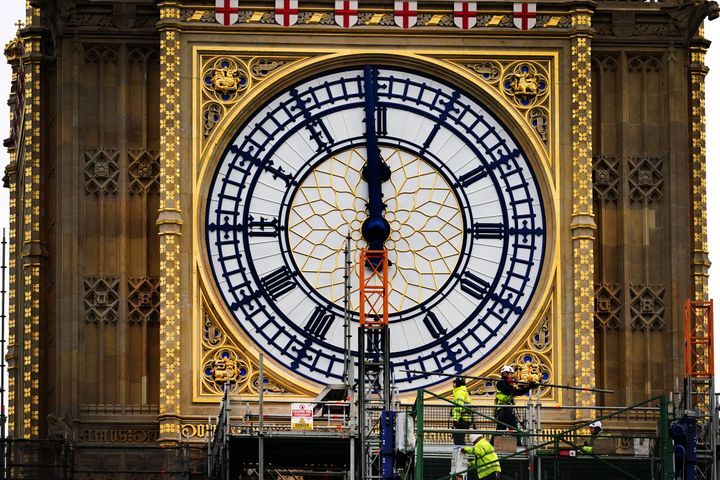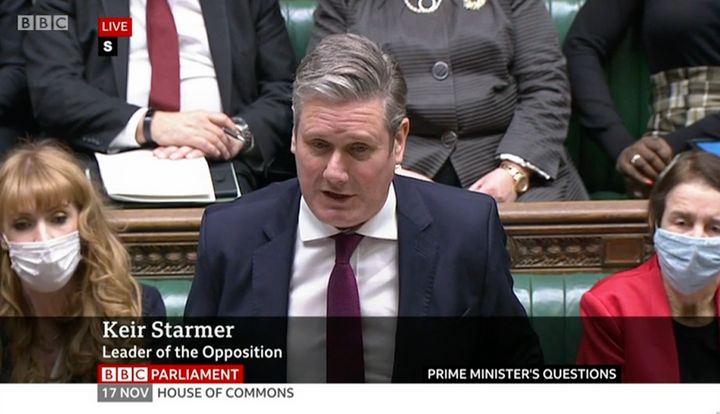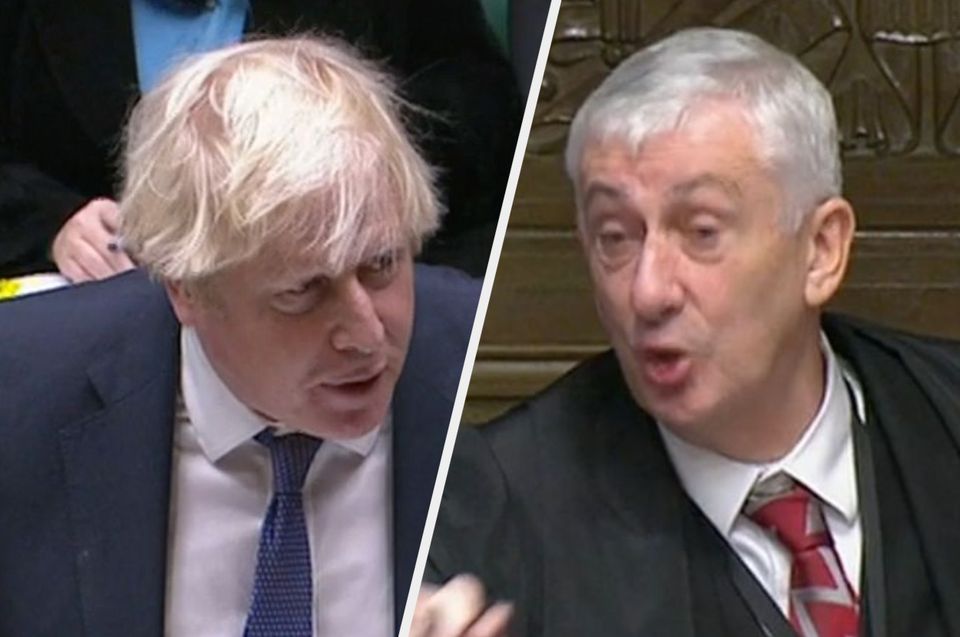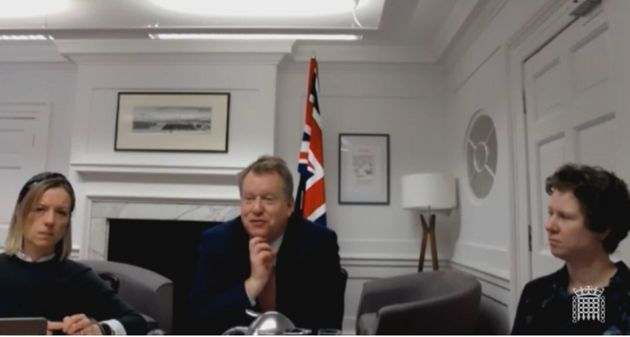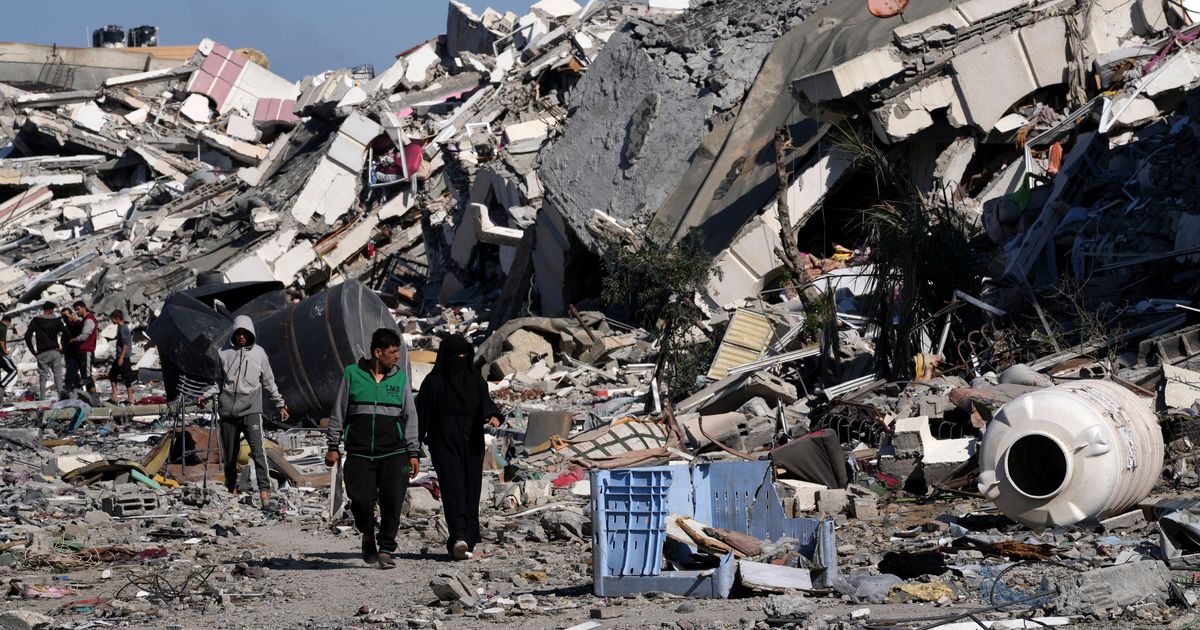
Experts have a grim prediction for what might happen in Gaza unless a ceasefire is called – and soon.
MPs have been ripping into each other over parliamentary procedure surrounding different parties’ motions around calling for a ceasefire or a pause in the fighting.
Advertisement
The row has now escalated into a major challenge to speaker Sir Lindsay Hoyle’s job, spinning away from the original matter at hand – the crisis in Gaza.
So it’s worth looking at an independent report which came out this week, from the John Hopkins’ Centre for Humanitarian Health and the London School of Hygiene & Tropical Medicine, which was funded by the government.
Even if there’s a ceasefire, the academics predict around 6,550 people will die between February 7 and August 6.
That’s because malnutrition, infectious diseases like cholera and a lack of care for those who have chronic conditions will continue to drive the numbers of deaths in the Palestinian territory.
Advertisement
If there’s no ceasefire, and the “status quo” stays the same as it is now, the academics believe 58,260 people will die over the next six months.
And if there’s an escalation of violence, up to 74,290 people will die in the same time frame, according to their predictions.
Traumatic injuries will make up the majority of excess deaths in the territory in these two latter scenarios, according to the independent researchers.
The academics’ projected scenario looks even worse if a health epidemic of some kind breaks out.
With a ceasefire and an epidemic, the academics believe there will be a further 11,580 deaths; without a ceasefire, this goes up to 66,720; and if there’s an escalation of violence, it skyrockets to 85,750 extra deaths.
The academics who worked on the report said it did not include Israel because its health system is still functioning.
Advertisement
Experts have been warning about the deteriorating health conditions in Gaza for months now.
More than 85% of Palestinian inhabitants have been left homeless and the World Health Organisation says 90% of children under 5 are affected by one of more infection disease.
A sixth of children under the age of two in the north of Gaza are also acutely malnourished.
According to the Hamas-run health authorities in Gaza, more than 29,000 people have been killed since the war began. The officials do not differentiate between civilians and militants.
Speaking on LBC’s Tonight with Andrew Marr, the Palestinian ambassador to the UK, Dr Hasam Zumlot, said that the scenes in the Commons last night were “disgraceful”, especially considering the state of Gaza right now.
He said on Wednesday night: “This is unthinkable, what is happening in Westminster today is simply unthinkable.”
Advertisement
He also predicted that if Israel does invade Rafah in southern Gaza – one of the last places of refuge in the Palestinian territory – “what will follow is World War III”.
He added: “It is as blunt and as simple as that because you have millions of people who will be scattered and dispersed. You will have a regional situation that is already at the brink.”
His comments came after a member of Israel’s war cabinet suggested this offensive would occur on March 10, the start of Ramadan, unless Hamas handed the remaining hostages back.
Zumlot warned: “If we don’t act in the next few days, this is going to be a regional war and a global war.”

